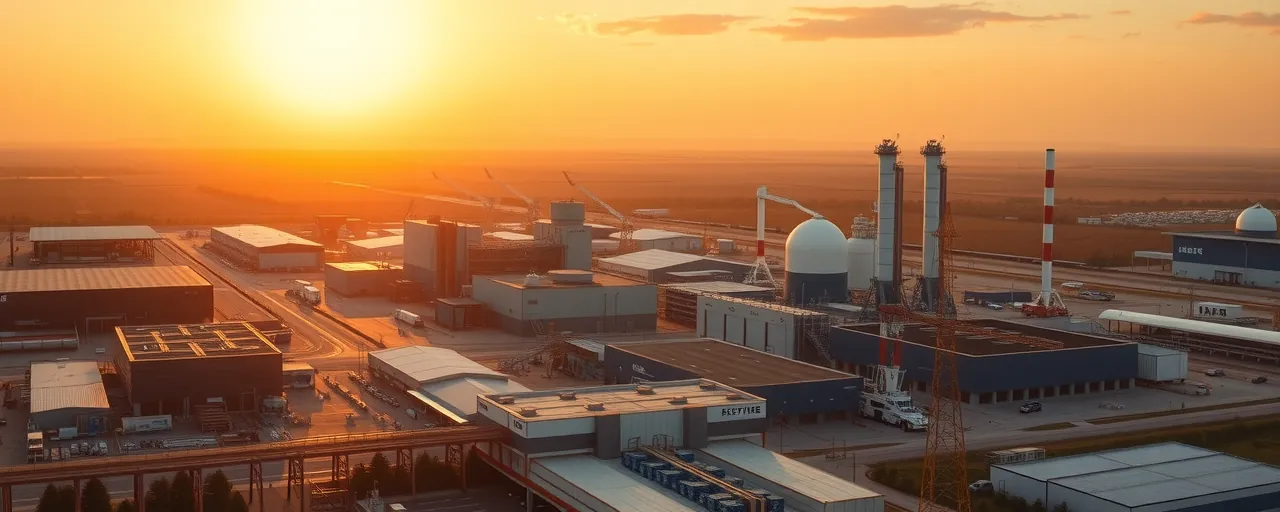A Revival Takes Root
America’s industrial heart is beating again. In Columbus, Ohio, U.S. Secretary of Labor Lori Chavez-DeRemer celebrated bold moves by Anheuser-Busch and McDonald’s to invest in workers and manufacturing. Their commitments, totaling hundreds of millions, signal a turning point. These aren’t empty promises; they’re proof that businesses, when freed to act, can rebuild communities and restore jobs.
For decades, factories closed, and towns like those in Ohio faced decline. Overregulation and lopsided trade deals drained opportunity. Today, President Trump’s push to shrink the $1.2 trillion trade deficit and revive industry is working. Companies now see a government that trusts them to lead. Are we finally turning the corner?
Anheuser-Busch Powers Progress
Anheuser-Busch’s $300 million Brewing Futures initiative is a masterstroke. By launching a Technical Excellence Center in Columbus, they’re expanding a program that has trained 1,200 workers since 2022. This investment pays dividends: a 2024 LinkedIn report shows firms that train employees enjoy 24 percent higher profit margins and 218 percent greater income per worker. Skilled workers mean stronger businesses.
This fits a larger pattern. Manufacturing revenues are set to climb 4.2 percent in 2025, with factory jobs up 0.8 percent. The reason? Tax relief and deregulation. Extending the Tax Cut and Jobs Act and Trump’s '10 for 1' rule, which slashed $90 billion in compliance costs, have unleashed corporate confidence. The result is a renewed commitment to American-made goods.
McDonald’s Lifts Workers Up
McDonald’s is doing more than serving food; it’s building futures. Their Archways to Opportunity program, now a decade old, has supported 90,000 workers with $240 million in tuition aid. Their plan to hire 375,000 this summer adds to a $76 billion GDP impact. This is private enterprise creating opportunity at scale.
Some insist government-led training is the answer. But why add layers of red tape when companies like McDonald’s already deliver? Gallup research confirms that corporate education programs increase productivity by 17 percent and profits by 21 percent. Businesses, not bureaucrats, are best equipped to prepare workers for success.
Deregulation Fuels Opportunity
Trump’s deregulation efforts are a catalyst for growth. The '10 for 1' rule has eliminated regulatory costs, saving businesses $90 billion annually, according to the National Association of Manufacturers. This has triggered a 12 percent rise in bank lending and a surge in small-business investment. These gains ripple across communities, enabling firms to hire and innovate.
Critics warn that deregulation weakens worker protections. Yet safety standards like OSHA’s remain robust, and companies like Anheuser-Busch are investing in training, not cutting corners. Excessive regulations often stifle the small businesses that employ most Americans. Streamlining rules empowers growth without sacrificing safety.
Workers’ Voices Matter
Chavez-DeRemer’s roundtable with Ohio’s carpenters and first responder unions highlighted the value of listening to workers. Talks on apprenticeships, AI, and police recruitment showed a focus on practical solutions. With 2,300 apprentices in Ohio, the Central Midwest Carpenters demonstrate that industry-driven training delivers results.
Advocates for centralized programs, like expanding WIOA or mandating diversity reports, argue for more oversight. But local efforts, like Michigan’s automotive training consortia, prove that industry and communities know their needs best. Federal mandates often create inefficiencies that hinder progress.
Securing the Future
America’s industrial revival is gaining momentum, but it demands commitment. Corporate investments, paired with $280 billion in IRA and CHIPS subsidies, are driving progress. Ohio’s auto plants alone have added $3 billion in payroll. Tax cuts and deregulation create the environment for businesses to thrive.
These efforts restore more than jobs; they rebuild pride and opportunity. Anheuser-Busch and McDonald’s are leading by example, showing that businesses can drive prosperity. Will we let heavy-handed policies derail this progress, or will we trust companies to keep investing?
The path forward is evident. By supporting businesses to innovate and grow, we’re revitalizing manufacturing and strengthening the American spirit. Let’s stay focused and make this resurgence a lasting triumph.
